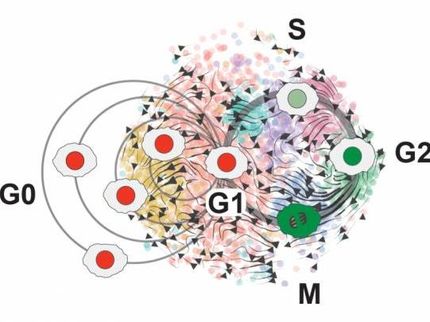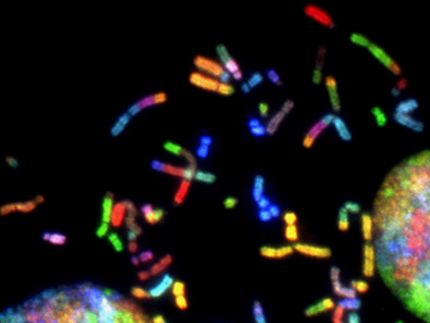Smoking and e-cigarettes change cells
E-cigarettes not as harmless as assumed?
Advertisement
Smokers and consumers of e-cigarettes not only share a habit, but also similar changes in cells associated with cancer, according to a new study by scientists from the University of Innsbruck and University College London (UCL), published in the journal Cancer Research.
It is no longer a secret that tobacco consumption has negative health consequences. According to estimates, it caused 7.69 million deaths worldwide in 2019 - and the trend is rising. In the search for alternatives to traditional cigarettes, people are increasingly switching to (disposable) e-cigarettes. According to related studies, the increase in e-cigarette use is particularly pronounced among 18 to 24-year-olds, active smokers and people who have quit smoking in the last year.
New insights into smoking-induced cell changes
A new study by the European Translational Oncology Prevention & Screening (EUTOPS) Institute, which was founded in 2020 in cooperation with the province of Tyrol and the University of Innsbruck, investigated the molecular effects of tobacco and e-cigarettes on the epigenome of various cells in collaboration with University College London (UCL), the University of Bristol and the German Cancer Research Center (DKFZ). The results of the study were recently published in the journal Cancer Research. It was supported by funding from the European Union's Horizon 2020 research and innovation program, The Eve Appeal and Cancer Research UK.
The epigenome overlays our genetic material (DNA) like a layer of information. If you think of DNA as the "hardware" of a computer, epigenetics is its "software": it determines how, where and when the programs used by the computer are executed. The epigenome can change over the course of our lives due to a variety of genetic and non-genetic factors. These include the ageing process, our lifestyle and exposure to chemicals and other environmental factors. "On the one hand, the epigenome allows us to look back and provides us with information about how our body has reacted to a previous environmental exposure. On the other hand, research into the epigenome can also allow us to predict future health and disease," explains study author Martin Widschwendter, Professor of Cancer Prevention and Screening at the University of Innsbruck and Director of the EUTOPS Institute.
One type of epigenetic change that is frequently investigated is DNA methylation. In this process, the genetic material is modified by the enzymatic transfer of methyl groups to selected DNA bases. The researchers have now analyzed more than 3,500 samples to determine how smoking traditional and electronic cigarettes affects DNA methylation in cells that are directly exposed to tobacco (e.g. cells in the oral cavity) and those that are indirectly exposed to it (e.g. cervical cells).
Precise smoking history recognizable in the epigenome
Computer-aided analyses of the samples showed that epigenetic changes caused by smoking remained stable in many cells for years. For example, the researchers were able to use epigenetic analysis in samples of oral mucosa to tell with over 90% accuracy whether a person currently smokes, has smoked in the past or has never smoked.
The researchers also found that so-called epithelial cells, which normally line organs and are usually the cells of origin for cancer, cause a "pro-carcinogenic" epigenome in the mouths of smokers - meaning that they show similar changes to cancer cells. The same epigenetic changes were also observed in the mouth cells of e-cigarette users with a very limited smoking history and in users of snuff. Based on these changes, it was possible to determine with an accuracy of over 90% whether a person consumes e-cigarettes or snus.
E-cigarettes not as harmless as assumed?
It is the first study to investigate the epigenetic effects of smoking and e-cigarette use on various cells in the body - including cells that often develop cancer as a result of tobacco use, such as oral mucosa cells. It is also one of the first studies dedicated to investigating the potential longer-term health effects of e-cigarette use. "Our findings suggest that e-cigarettes, and in particular their long-term effects, need to be examined more closely before they are widely recommended as '95% safer than cigarettes' for smoking cessation. While they may be an important cessation tool, it is important to explore their risks and potential link to long-term health consequences," explains first author Chiara Herzog, Molecular Medicine Scientist at the EUTOPS Institute. "We hope that this study will contribute to a broader discussion on why it is important to limit both tobacco and e-cigarette use - especially among adolescents and people who have never smoked."
Implications for cancer prediction
In the future, the researchers want to take a closer look at assessing the long-term health risks of (e-)cigarettes by investigating how the results on epigenetic changes obtained from oral swabs could be used to identify people at the highest risk of cancer. "Changes observed in lung cancer tissue can also be detected in oral cells of smokers who are not (yet) cancerous themselves. Importantly, our research suggests that users of e-cigarettes show the same changes and that these new products may not be as harmless as originally thought. Long-term studies on e-cigarettes are needed," emphasizes Martin Widschwendter.
Note: This article has been translated using a computer system without human intervention. LUMITOS offers these automatic translations to present a wider range of current news. Since this article has been translated with automatic translation, it is possible that it contains errors in vocabulary, syntax or grammar. The original article in German can be found here.


























































